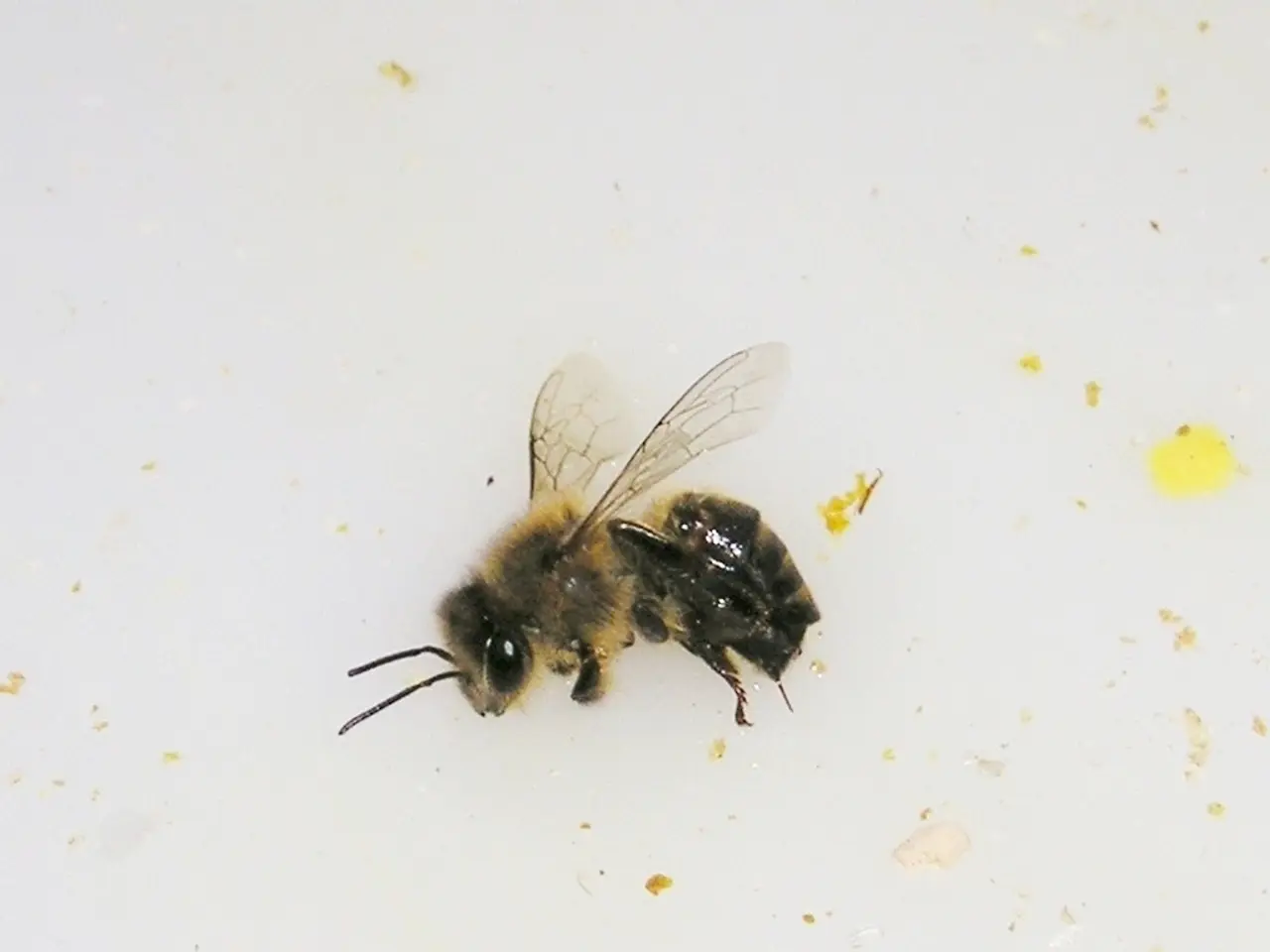Night-time feeder, the venomous cone-nosed bug (Triatoma sanguisuga), found on foliage. This stealthy bloodsucker is infamous for transmitting Chagas disease to its hosts.
In the warmer months, typically at the end of spring and moving into summer, a tropical illness known as Chagas disease becomes more prevalent. This disease, caused by the parasite Trypanosoma cruzi and spread by insects known as "kissing bugs," has been found in 32 states across the United States, from California to Maryland.
These nocturnal insects, known as triatomine bugs, hide during the day and feed on blood while the host sleeps. They are often found near sleeping areas, biting around the mouth or eyes. However, they can bite anywhere on the body that is accessible.
Initial signs of Chagas disease infection can include swelling at the infection site, fever, eyelid swelling, and loss of appetite. If left untreated, the disease can enter a chronic phase, where the parasites hide in the body, primarily in the heart or digestive muscles.
The most serious complication of Chagas disease is Chagas heart disease, which weakens the entire heart organ. This condition affects an estimated 280,000 people in the U.S. alone.
A 2023 study found that wild animals can provide nesting places for North American kissing bugs. This, along with the fact that the parasite can be transmitted either from the bite or exposure to the feces of triatomine bugs, means that close proximity to infected wild animals or eating uncooked food containing stool from infected bugs can also lead to infection.
Transmission can also occur through infected blood or organ transplants.
To prevent Chagas disease, the best approach is an integrative pest management strategy that aims to keep the insects from entering your home. Decluttering a home can help, as these insects are attracted to stacked firewood, nonfunctioning automobiles, bricks, blocks, and pipes, as well as rodent nests, fox dens, armadillo burrows, and opossum latrines.
In the southern United States, especially in Texas, Arizona, New Mexico, and parts of California, controlling the spread of triatomine bugs involves improving housing conditions to reduce insect habitats, using insecticides, screening blood donations, and raising public awareness about avoiding contact with these insects.
Dr. Beatty, an expert in the field, hopes that the new endemic label for Chagas disease will increase awareness and motivate more robust data collection. With over 10,000 people with Chagas disease experiencing sudden cardiac death each year globally, it is crucial that we continue to educate and protect ourselves from this preventable disease.
Read also:
- What is the expected timing for the flu season in this current year?
- Essential Information on Cushing Syndrome: a Disorder Caused by High Cortisol Levels
- Starting in September, elderly individuals aged 75 years and above will be enrolled in a preventive program for Respiratory Syncytial Virus (RSV).
- Financial burdens associated with alcohol-induced offenses and criminal justice system expenses





